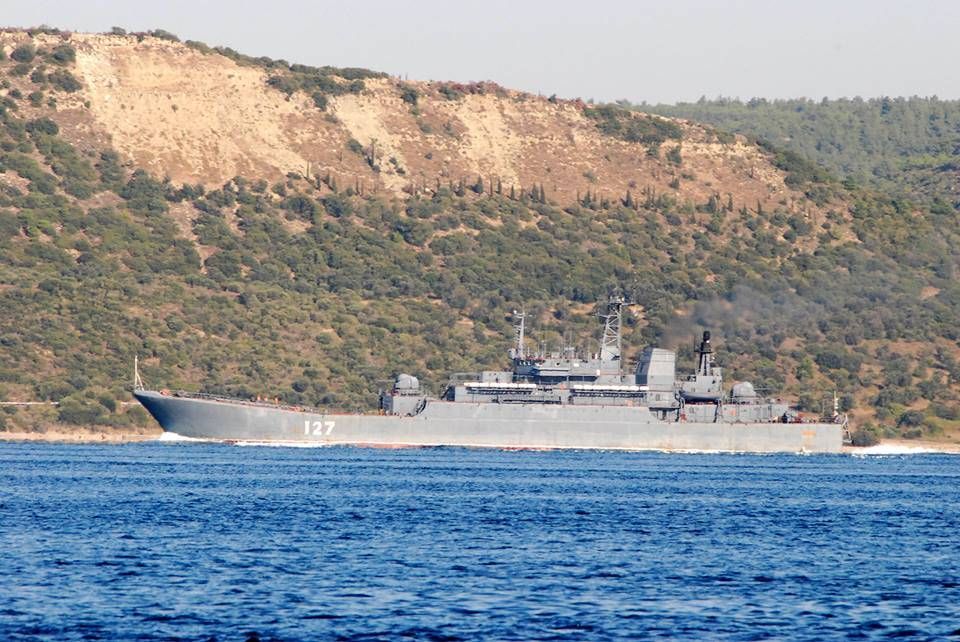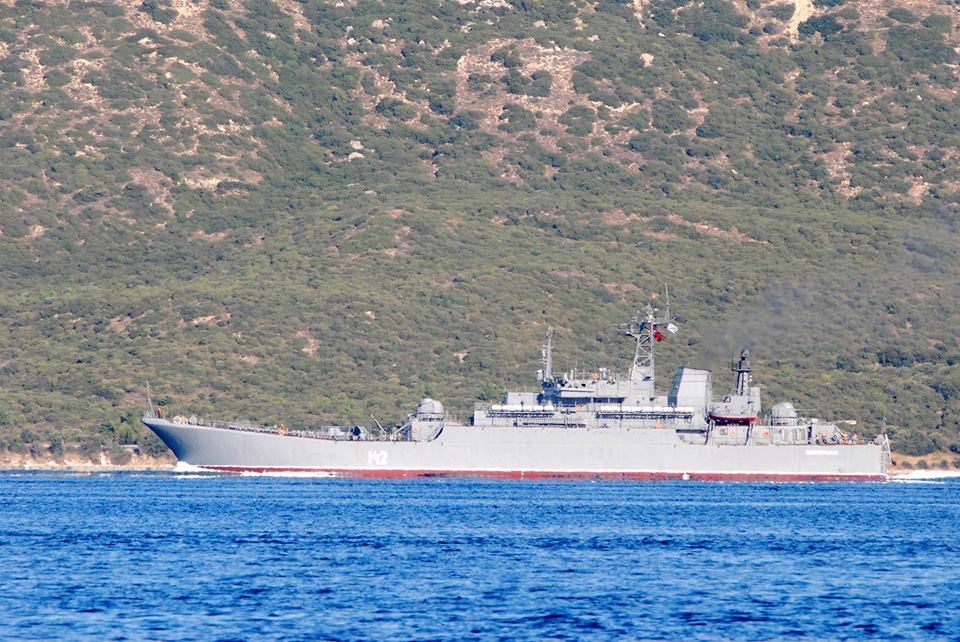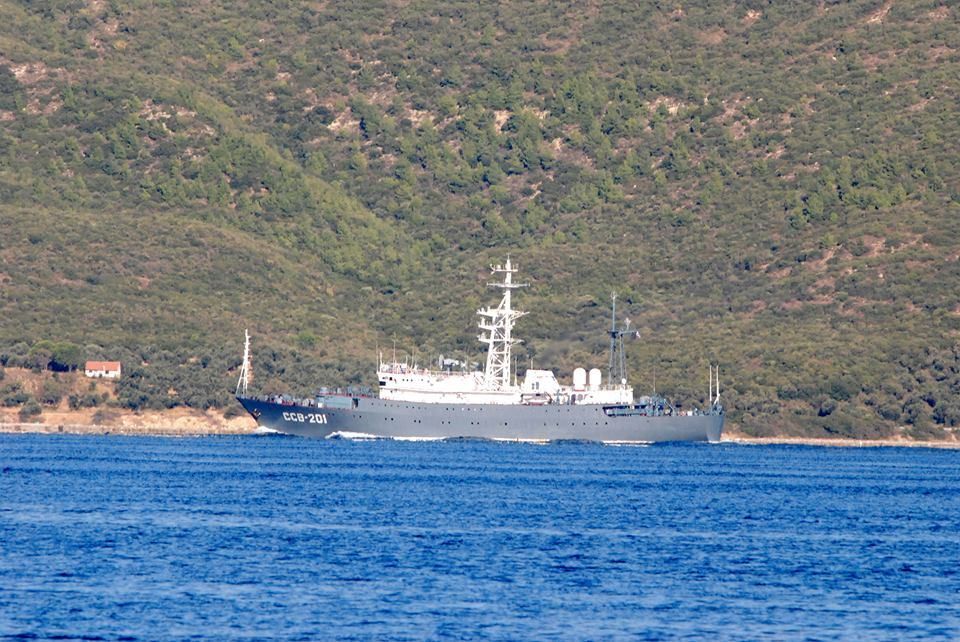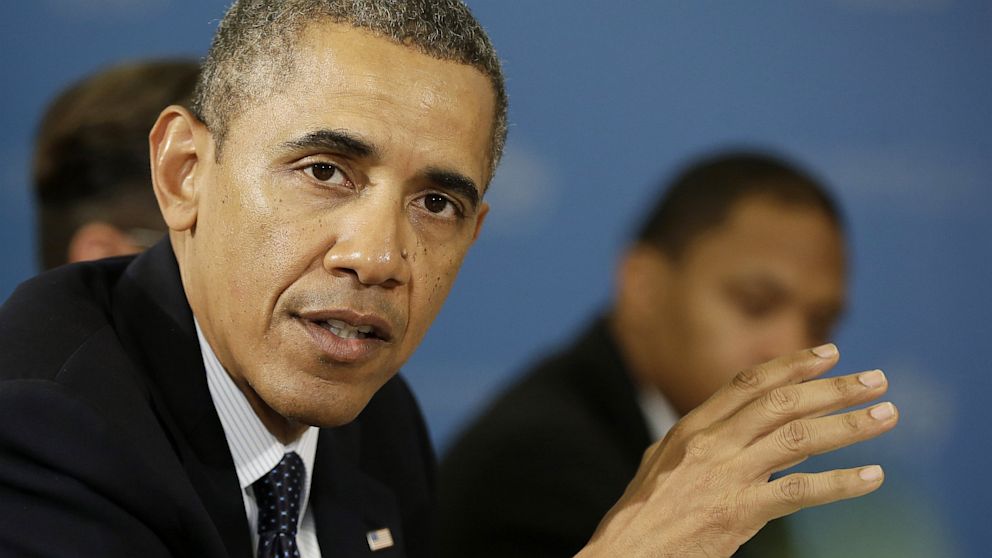Kerry Floats a Deal on Arms, and Russia and Syria Seize It
By STEVEN LEE MYERS, MICHAEL R. GORDON and RICK GLADSTONE
MOSCOW — A seemingly offhand suggestion by Secretary of State John Kerry that Syria could avert an American attack by relinquishing its chemical weapons received an almost immediate welcome from Syria, Russia, the United Nations, key American allies and even some Republicans on Monday as a possible way to avoid a major international military showdown in the Syria crisis.
A White House official said the administration was taking a “hard look” at the idea.
While there was no indication that Mr. Kerry was searching for a political settlement to the Syrian crisis in making his comment, Russia — the Syrian government’s most powerful supporter — seized on it as a way of proposing international control of Syria’s chemical weapons arsenal.
A senior State Department official, who was traveling on the plane with Mr. Kerry en route home from London, where he made the remarks in a news conference, said that the Russians had previewed their proposal with the secretary of state before going public.
After Mr. Kerry’s news conference in London, conducted with William Hague, Britain’s foreign secretary, Mr. Kerry talked by phone for 14 minutes with Mr. Lavrov on the plane, the official said.
The reactions appeared to reflect a broad international desire to de-escalate the atmosphere of impending confrontation even as President Obama was lobbying heavily at home to garner Congressional endorsement of a military strike.
Mr. Kerry’s suggestion — and the Russian and Syrian response — also seemed to represent the first possible point of agreement over how to address the chemical weapons issue that has threatened to turn the Syria conflict, now in its third year, into a regional war.
But the Russian and Syrian responses, coming just as the White House was stepping up efforts to win Congressional and international support for a military strike, were dismissed by some as either a delaying tactic or a ploy to encourage opposition to Mr. Obama’s plans for a strike.
A top White House national security official, Tony Blinken, later suggested to reporters in Washington that the Obama administration was not dismissing the idea of an internationally supervised sequestering of Syria’s chemical munitions as a possible solution, but that it remained skeptical.
“We’re going to take a hard look at this,” Mr. Blinken said. “We’ll talk to the Russians about it.”
Asked at a news conference in London if there were steps the Syrian president, Bashar al-Assad, could take to avoid an American-led attack, Mr. Kerry said, “Sure, he could turn over every single bit of his chemical weapons to the international community in the next week — turn it over, all of it, without delay and allow the full and total accounting.”
But Mr. Kerry immediately dismissed the possibility that Mr. Assad would or could comply, saying, “But he isn’t about to do it, and it can’t be done.”
However, in Moscow, Russia’s foreign minister, Sergey V. Lavrov, who was meeting with Syria’s foreign minister, Walid al-Moallem, said in response that Russia would join any effort to put Syria’s stockpile of chemical weapons under international control and ultimately destroy them.
Mr. Lavrov appeared at a previously unscheduled briefing only hours after Mr. Kerry made his statement in London, taking Mr. Kerry’s comments as a way to suggest a possible compromise.
“We don’t know whether Syria will agree with this, but if the establishment of international control over chemical weapons in the country will prevent attacks, then we will immediately begin work with Damascus,” Mr. Lavrov said at the Foreign Ministry. “And we call on the Syrian leadership to not only agree to setting the chemical weapons storage sites under international control, but also to their subsequent destruction.”
Mr. Moallem said later in a statement that his government welcomed the Russian proposal, Russia’s Interfax News Agency reported, in what appeared to be the first acknowledgment by the Syrian government that it even possessed chemical weapons. The Syrian government has historically neither confirmed nor denied possessing them.
In quick succession, the idea of sequestering Syria’s chemical weapons stockpile was also endorsed by Britain’s prime minister, David Cameron, the United Nations secretary general, Ban Ki-moon and France’s foreign minister, Laurent Fabius.
Mr. Ban said he might propose a formal resolution to the Security Council, which has been paralyzed over how to deal with the Syria crisis from the beginning.
Mr. Cameron told lawmakers in London that if Syria handed over its chemical weapons arsenal for destruction under international supervision, “it would be hugely welcome,” news agencies in Britain reported.
Mr. Fabius of France, whose government has joined with the Obama administration in pressing for military intervention, also welcomed the Russian proposition, but said Mr. Assad must “commit without delay” and place all chemical munitions under “international control.” In a statement, Mr. Fabius also called for a Security Council resolution that would carry the threat of “firm consequences” for noncompliance.
In Washington, Representative Mike Rogers, a Michigan Republican who heads the House Intelligence Committee, expressed cautious support for Mr. Lavrov’s response. “Just the fact the Russians have moved tells me having this debate on military action is a having a positive outcome,” Mr. Rogers said in a telephone interview.
The United States and Russia had discussed the problem of how to deal with Syria’s chemical weapons before, including in May when Mr. Kerry went to Moscow. In his conversation with Mr. Kerry on Monday, however, Mr. Lavrov outlined the proposal that he planned to unveil later in the day: Syria should allow international monitors to control the chemical weapons and agree ultimately to give them up.
“We are not going to play games,” Mr. Kerry told Mr. Lavrov, the State Department official said. If the Russians had a serious proposal, the Obama administration was prepared to consider it, Mr. Kerry added.
Mr. Kerry also told Mr. Lavrov that his comments earlier in the day suggesting that Syria might avert an American strike by giving up its chemical weapons within a week, which Mr. Lavrov cited at their beginning of their phone conversation, had merely been a rhetorical point.
And Mr. Kerry also said that the White House would not slow down its efforts to win Congressional approval of a military strike, the State Department official said.
Obama administration had discussed the idea of some sort of ultimatum that might be presented to Mr. Assad to give up his chemical weapons stocks. But the idea seemed to have many problems. Among the unknowns were how would the stocks be secured and transported, and how would inspectors ensure that stocks were not hidden.
Mr. Kerry had said on Sunday that he hoped to get additional nations within 24 hours to sign on to a statement calling for a strong international response. And Mr. Lavrov’s proposal may have been intended to thwart such an outcome.
Mr. Lavrov went into more detail than Mr. Kerry’s suggestion — which Mr. Kerry’s own spokeswoman, Jen Psaki, had described as more of a rhetorical exercise than a proposal.
Mr. Lavrov said Russia was proposing that Syria join the international Convention on Chemical Weapons, which bars the manufacture, stockpiling and use of poison gas.
Syria is one of seven nations that are not parties to the treaty, the others being Angola, Egypt, Israel, Myanmar, North Korea and South Sudan. “We are counting on a quick, and I hope, positive answer,” Mr. Lavrov said Monday evening as Mr. Kerry flew back to Washington to attend briefings on Capitol Hill intended to build support for a military response to Syria’s use of such weapons.
For Mr. Hague, the British foreign secretary, whose government has already ruled out participation in a military strike on Syria in deference to parliamentary opposition, his meeting with Mr. Kerry on Monday was nonetheless an opportunity to affirm British support for the United States, its most important ally.
“Our government supports the objective of ensuring that there can be no impunity for the first use of chemical warfare in the 21st century,” Mr. Hague said in his joint appearance with Mr. Kerry. “As an international community, we must deter further attacks and hold those responsible for them accountable.”
Mr. Hague also said, “We admire the leadership of President Obama and Secretary Kerry himself, in making this case so powerfully to the world.”
Mr. Kerry said that Mr. Assad’s claims that he was not responsible for the chemical attack on Aug. 21 that provoked an international crisis over whether to launch punitive military strikes were not credible because Syria’s arsenal of poison gas is tightly controlled.
Mr. Kerry said that three senior officials in the Syrian government have held control over the nation’s chemical weapons stocks and their use: Mr. Assad, his brother Maher and a senior general.
Mr. Kerry said that “high level” members of the government gave the instructions to use chemical weapons in the Aug. 21 attack near Damascus “with the results going directly to President Assad.”
When asked if the White House would consider making public additional intelligence to counter Mr. Assad’s claims that he had nothing to do with the attack, like physical samples that documented the use of sarin gas produced by the Syrian government, Mr. Kerry said that he did not know what President Obama would decide.
But he asserted that the Obama administration had already made available copious amounts of intelligence, and that the case against Mr. Assad was airtight.
In a discussion on Sunday with Charlie Rose, the American television interviewer, Mr. Assad asserted that Mr. Kerry had lied about the intelligence, drawing an analogy to the presentation that Colin Powell made to the United Nations about Iraq in 2003. Mr. Kerry appeared unruffled by that allegation and recalled that his own experience in dealing with Mr. Assad as a senator had convinced him that the Syrian leader could not be trusted.
In early 2009, Mr. Kerry met with Mr. Assad in Damascus to explore the possibility of improving relations between the United States and Syria. Mr. Kerry said that he confronted Mr. Assad about intelligence confirming that Syria had transferred Scud missiles to Hezbollah.
Mr. Kerry said that Mr. Assad had “denied it to my face,” adding, “This is a man without credibility.”
Repeating a point he has stressed throughout his four days of discussions with European allies, Mr. Kerry said that if an attack was carried out, it would be limited in scope and duration, would not involve ground troops, and would not drag the United States and its allies into a prolonged conflict. He emphasized that it would be nothing like the wars in Iraq and Afghanistan, the NATO bombing of Kosovo or the intervention in Libya.
Steven Lee Myers reported from Moscow, Michael R. Gordon reported from London and Rick Gladstone from New York. Eric Schmitt and Michael D. Shear contributed reporting from Washington, and Scott Sayare from Paris.




